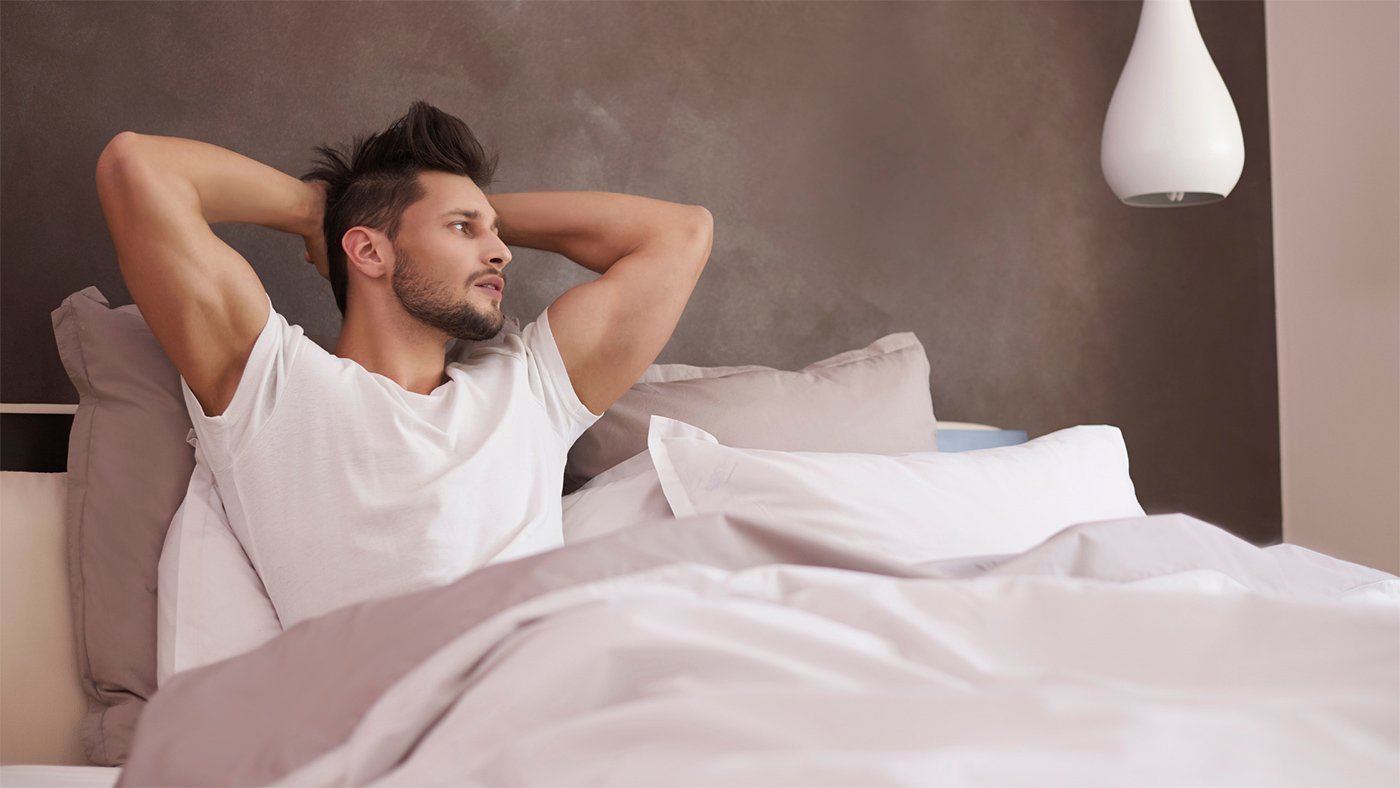Sleep Deficiency and ED: Understanding the Connection
A side effect of sleep loss can be erectile dysfunction (ED). ED is characterized by the inability to achieve or sustain an erection long enough to have sex. If this occurs more than 50% of the time, ED is considered “chronic” and there is likely an underlying cause or health issue.3 One such condition could be a sleep disorder.
No matter the type of sleep disorder, the primary side effect is the same: short and/or low-quality sleep. Sleep deprivation is well-known to impact cardiovascular health, increase inflammation, and disrupt neurological and hormone signaling pathways.4 While these conditions can impact the body in different ways, they are all closely tied to ED.4
Chronic Sleep Disorders Associated With ED
Dozens of disorders interfere with the ability to get high-quality sleep, but the conditions most commonly linked to ED are obstructive sleep apnea and insomnia.
Obstructive Sleep Apnea
Obstructive sleep apnea (OSA) occurs when the upper airway partially or completely collapses, reducing airflow and resulting in loud snoring.5 Typically, patients unconsciously wake up and gasp for air to restore proper oxygen levels. This pattern ultimately leads to highly fragmented sleep and fluctuations in oxygen circulation.
As a result, OSA patients commonly experience issues with sexual function — one study found a 63.2% ED prevalence rate in men with OSA.6 The exact mechanism linking these two conditions is unclear, but researchers suggest vascular issues and a reduction in nitric oxide, the chemical responsible for erectile function.6
Insomnia
Insomnia, or chronic sleep insufficiency, is one of the most common sleep disorders.5 An estimated 30 to 35% of the population has one or more symptoms that interfere with sleep cycles, which can lead to sexual dysfunction.
Testosterone production increases at two critical points during the night: immediately after you fall asleep and during your first REM cycle.5 Without consistent, structured sleep, your testosterone levels will decrease and you may struggle to get an erection. One study found that restricted sleep during the second half of the night substantially reduces testosterone levels in the morning.7
Treating Erectile Dysfunction
A disrupted sleep cycle and ED are frustrating and can negatively impact your relationship. While sleep disorders require a multifaceted treatment approach — ED is typically easier to treat.
Prescription medications are also effective and can improve sexual function in a relatively short period. The two most popular ED medications are sildenafil (Viagra) and tadalafil (Cialis). They are both phosphodiesterase-5 (PDE5) inhibitors, which relax the blood vessels and allow more blood to flow into the penis. Sildenafil and tadalafil are FDA-approved generic alternatives available at a lower cost than their brand-name equivalents. With MediSuite, you can save hundreds of dollars each month on these prescriptions while getting your medication shipped directly to your home.
Become a MediSuite patient today to get low-cost ED medication, convenient online refills, and discreet doorstep delivery. Start an online visit or call us at 919-200-6952 or 1-800-601-0691.
Sources
1. Why Is Sleep Important? (2022, March 24). National Heart, Lung, and Blood Institute. https://www.nhlbi.nih.gov/health/sleep/why-sleep-important
2. What are Sleep Deprivation and Deficiency? (2022, March 24). National Heart, Lung, and Blood Institute. https://www.nhlbi.nih.gov/health/sleep-deprivation
3. Erectile Dysfunction. (n.d.). Cleveland Clinic. Retrieved June 6, 2023, from https://my.clevelandclinic.org/health/diseases/10035-erectile-dysfunction
4. Zhang, F., Xiong, Y., Qin, F., Yuan, J. (2022). Short Sleep Duration and Erectile Dysfunction: A Review of the Literature. Nature and Science of Sleep 14, 1945-1961.
5. Cho, J.W. & Duffy, J.F. (2019). Sleep, Sleep Disorders, and Sexual Dysfunction. World Journal of Men’s Health 37(3), 261-275.
6. Taken, K., Ekin, S., Arisoy, A., Günes, M., Dönmez, M.I. (2016). Erectile dysfunction is a marker for obstructive sleep apnea. Aging Male 19(2), 102-105.
7. Schmid, S.M., Hallschmid, M., Jauch-Chara, K., Lehnert, H., Schultes, B. (2012). Sleep timing may modulate the effect of sleep loss on testosterone. Clinical Endocrinology 77(5), 749-754.

